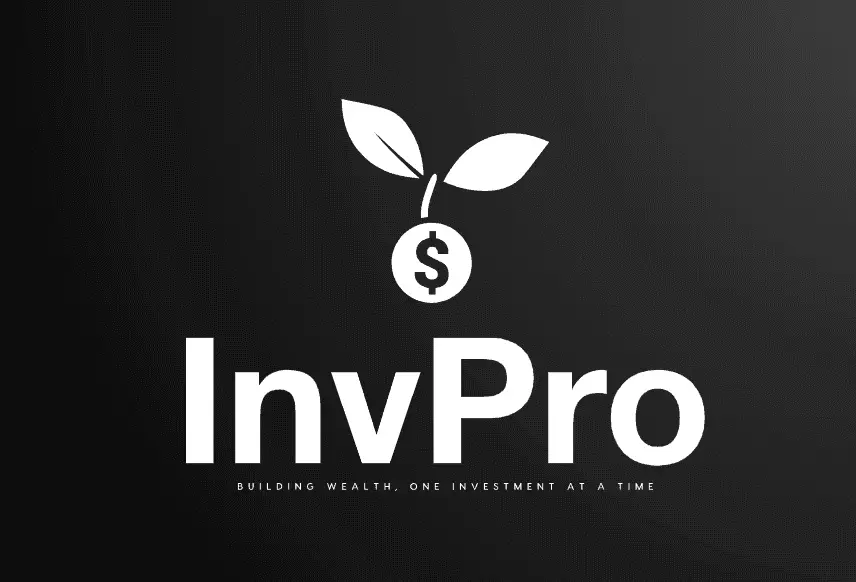The Execs and Cons of Investing in Startups: Is Enterprise Capital Proper for You?

Smart Investing on a Budget: How to Start Small and Build Wealth Over Time
Investing isn’t just for the wealthy. In fact, starting small and building your investment portfolio over time is one of the most practical approaches to creating long-term wealth. Whether you have $5 or $500 to spare, there’s an investment vehicle that can work for your budget. This comprehensive guide will walk you through the process of beginning your investment journey with limited funds and gradually expanding your financial portfolio.
Why Everyone Should Invest (Even on a Tight Budget)
The concept of investing often conjures images of Wall Street traders and wealthy individuals making million-dollar deals. However, the reality is far more accessible. Investing early and consistently—even with small amounts—can lead to significant financial growth over time.
The Power of Compound Interest
The magic of investing lies in compound interest, what Einstein reportedly called the “eighth wonder of the world.” When you invest, your money earns returns, and then those returns begin earning their own returns. This snowball effect can transform modest investments into substantial sums over decades.
For example, investing just $50 monthly with a 7% average annual return could grow to over $25,000 after 20 years—despite having contributed only $12,000 of your own money. The rest comes from compound growth!
Financial Security and Independence
Beyond wealth accumulation, investing provides a path toward financial security. As your investments grow, you develop an income source that doesn’t require your active work hours—what financial experts call “passive income.”
Even small investors can benefit from this financial independence. By consistently adding to your investments, you’re essentially paying your future self, creating options for early retirement, career changes, or simply peace of mind.
Investment Vehicles for Budget-Conscious Beginners
When you’re working with limited funds, choosing the right investment vehicles becomes crucial. Fortunately, modern financial technology has dramatically lowered the entry barriers.
Micro-Investing Apps
Perhaps the most revolutionary development for budget investors is the rise of micro-investing platforms. These smartphone applications allow users to start investing with as little as $5.
Popular options include:
- Acorns: Automatically rounds up your everyday purchases and invests the spare change
- Stash: Lets you buy fractional shares of stocks with as little as $5
- Robinhood: Offers commission-free trades with no minimum deposit requirements
These platforms make investing almost effortless, allowing you to grow your portfolio through everyday activities.
Low-Cost Index Funds
For slightly larger sums (often $100-$1000 minimum), index funds offer an excellent entry point. These funds track specific market indexes like the S&P 500, automatically diversifying your investment across hundreds of companies.
What makes index funds particularly suitable for budget investors is their extraordinarily low fee structure. While actively managed funds might charge 1-2% annually, many index funds charge less than 0.1%, allowing more of your money to grow.
According to Vanguard, one of the pioneers in low-cost index investing, the difference between a 0.1% and 1% fee can translate to tens of thousands of dollars over a typical investment lifetime.
Exchange-Traded Funds (ETFs)
ETFs function similarly to index funds but trade like individual stocks. This gives investors more flexibility, as they can be bought and sold throughout the trading day at market prices.
Many brokerages now offer fractional shares of ETFs, meaning you can invest with as little as $5-$10 in some cases. This democratization of investing allows budget-conscious individuals to access diversified portfolios previously available only to those with substantial capital.
Practical Strategies for Investing on a Budget
Having the right tools is only part of the equation. Successful investing also requires sound strategy, especially when working with limited resources.
Start Small but Start Now
The most crucial investment advice isn’t about which stock to pick or which fund to choose—it’s simply to begin investing as soon as possible. Time in the market is perhaps the most significant advantage any investor can have.
Consider this: If you start investing $100 monthly at age 25 with an 8% average annual return, you’ll have approximately $350,000 by age 65. Wait until age 35 to begin, and you’ll have only about $150,000—less than half, despite delaying just ten years.
Embrace Dollar-Cost Averaging
When investing with small amounts, dollar-cost averaging (DCA) is your best friend. This strategy involves investing a fixed amount at regular intervals, regardless of market conditions.
For example, investing $50 every month rather than waiting to accumulate $600 for an annual investment has two major advantages:
- It removes the psychological barrier of needing a “large” sum to start
- It naturally buys more shares when prices are low and fewer when prices are high
This approach helps smooth out market volatility and reduces the risk of making poorly timed investment decisions based on emotion.
Automate Your Investments
One of the biggest challenges for budget investors is maintaining consistency. When money is tight, it’s tempting to skip contributions or use investment funds for other purposes.
Automation eliminates this temptation. By setting up automatic transfers from your checking account to your investment account, you ensure consistent contributions. Many experts recommend scheduling these transfers to occur right after payday, treating investments like any other bill.
As Charles Schwab research suggests, automated investing not only improves consistency but also typically leads to better long-term results by removing emotional decision-making from the equation.
Growing Your Investment Portfolio Over Time
Starting small doesn’t mean staying small. As your financial situation improves, your investment strategy should evolve accordingly.
Gradual Contribution Increases
A powerful approach to accelerating your investment growth is the “percentage increase method.” Each time you receive a raise or bonus, immediately allocate a portion (ideally 50% or more) to increasing your investment contributions.
For instance, if you receive a 4% salary increase, consider boosting your investment rate by 2%. You’ll still enjoy additional spending money while significantly enhancing your wealth-building efforts.
Reinvest All Returns
For maximum compounding benefit, reinvest all dividends and capital gains rather than taking them as cash. Most investment platforms offer automatic dividend reinvestment programs (DRIPs) that purchase additional shares whenever distributions occur.
This reinvestment strategy substantially increases long-term returns. According to data from Hartford Funds, reinvested dividends accounted for approximately 84% of the S&P 500’s total return from 1960 through 2021.
Diversify as You Grow
As your investment portfolio expands, so should your diversification strategy. While beginning investors might start with a single broad-market index fund, growing portfolios benefit from exposure to various asset classes:
- Domestic stocks (large, mid, and small-cap)
- International stocks (developed and emerging markets)
- Bonds (government and corporate)
- Real estate (through REITs)
- Alternative investments (as appropriate for your risk tolerance)
This diversification helps protect against sector-specific downturns while potentially capturing returns from stronger-performing areas of the global economy.
Avoiding Common Pitfalls for Budget Investors
Even the most dedicated small investors can be derailed by common mistakes. Awareness of these potential pitfalls is crucial for long-term success.
Don’t Chase Performance
When investing with limited funds, there’s often a temptation to maximize returns by chasing “hot” investments. However, past performance rarely predicts future results, and yesterday’s winners frequently become tomorrow’s laggards.
Instead, focus on maintaining a consistent investment strategy aligned with your long-term goals and risk tolerance. The boring, steady approach typically wins the investment race.
Beware of Fees and Minimums
For budget investors, fees can be particularly damaging. A seemingly small 1% annual fee might reduce your portfolio’s value by nearly 28% over 30 years compared to a 0.1% fee alternative.
Always investigate:
- Management fees
- Trading commissions
- Account maintenance fees
- Minimum balance requirements
- Early withdrawal penalties
These costs can quickly erode returns, especially on smaller portfolios.
Maintain an Emergency Fund First
Before allocating money to investments, ensure you have adequate emergency savings—typically 3-6 months of essential expenses in a readily accessible account.
Without this financial buffer, you might be forced to liquidate investments at inopportune times to cover unexpected expenses, potentially realizing losses and disrupting your long-term strategy.
Charts and Key Data
Investment Growth Comparison by Starting Age
| Age Started | Monthly Investment | Total Invested by Age 65 | Estimated Value at 65 (7% Return) |
|---|---|---|---|
| 25 | $100 | $48,000 | $248,551 |
| 35 | $100 | $36,000 | $122,709 |
| 45 | $100 | $24,000 | $58,328 |
| 55 | $100 | $12,000 | $17,308 |
Investment Options for Budget Investors
| Investment Type | Minimum Investment | Typical Fee Range | Key Benefit |
|---|---|---|---|
| Micro-Investing Apps | $1-$5 | 0.25%-1.00% | Extremely low entry point |
| Index Funds | $0-$3,000 | 0.03%-0.20% | Broad diversification |
| ETFs | $1-$200 | 0.03%-0.50% | Intraday trading flexibility |
| Dividend Stocks | $1-$100 | $0-$7 per trade | Income generation |
| REITs | $500-$2,500 | 0.59%-1.25% | Real estate exposure |
My Thoughts on Budget Investing
The democratization of investing represents one of the most significant financial developments of the 21st century. No longer is wealth-building restricted to those who already have substantial resources—today, anyone with internet access and a few dollars can begin their investment journey.
As someone who started investing with just $25 per month, I’ve witnessed firsthand how seemingly insignificant contributions can grow into meaningful sums over time. The key is simply getting started, regardless of how modest your initial investments might be.
Remember that investing is not about getting rich quickly—it’s about building wealth steadily over decades. Be patient with yourself and your portfolio, trust in the power of compounding, and maintain a long-term perspective even when markets inevitably fluctuate.
Conclusion
Investing on a budget isn’t just possible—it’s a powerful strategy that leverages time and consistency to build significant wealth. By understanding investment fundamentals, choosing appropriate vehicles, implementing smart strategies, and avoiding common mistakes, even those with limited financial resources can create substantial investment portfolios over time.
The most important step is simply to begin. Every financial journey starts with a single dollar invested, and the sooner you start, the greater your potential for long-term growth. Remember that investing success isn’t determined by how much you start with, but by how consistently you contribute, how wisely you allocate your funds, and how long you allow compound interest to work its magic.
FAQs About Budget Investing
1. How much money do I really need to start investing? You can start investing with as little as $1-$5 through micro-investing apps like Acorns or Stash. Many brokerages now offer fractional shares, allowing you to purchase portions of stocks or ETFs with whatever amount you have available.
2. Is it worth investing small amounts, or should I wait until I have more money? It’s absolutely worth investing small amounts rather than waiting. Time in the market is one of the most significant factors in investment success, and starting early—even with small amounts—gives your money more time to compound and grow.
3. How do I balance paying off debt with investing when on a tight budget? Generally, you should prioritize high-interest debt (typically anything above 6-8%) before significant investing. However, if your employer offers a 401(k) match, contribute enough to capture that match regardless of debt, as it represents an immediate 100% return on your investment.
4. What’s the biggest mistake budget investors make? The biggest mistake is inconsistency—starting and stopping investments based on financial pressures or market conditions. Automating even small contributions helps maintain discipline despite budget constraints.
5. How long will it take to see meaningful results from small investments? While individual results vary based on contribution amounts and market performance, many budget investors begin seeing meaningful growth after 5-7 years of consistent investing. The power of compounding becomes increasingly visible over decades rather than years, so patience is essential.
